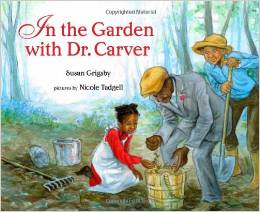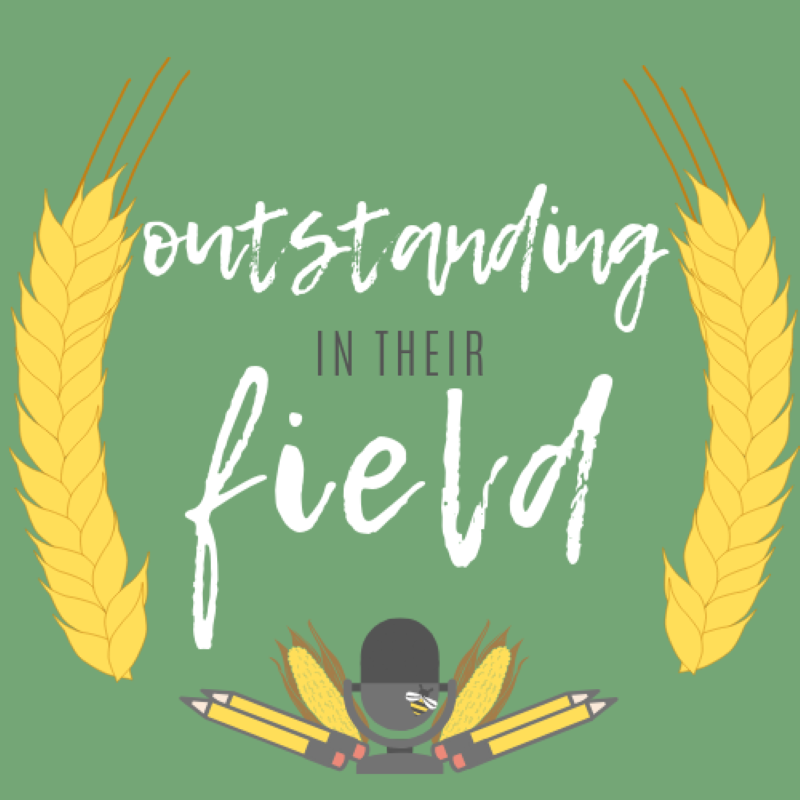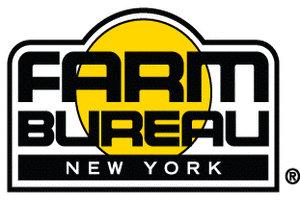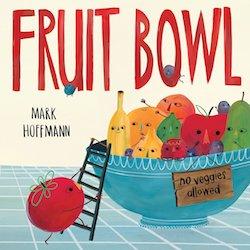|
New York Agriculture in the Classroom | February 2021
|
|
Stay Up To Date!
Want to stay up to date with NYAITC? Follow us on social media and never miss out on exciting news and opportunities!
|
Find us on Social Media!
Are you incorporating agriculture into your classroom? We want to see, tag us on social media @NewYorkAITC on Twitter and NYAITC on Facebook.
Give us a follow at @nyagintheclassroom on Instagram and see what's happening across the state in classrooms just like yours.  |
Important Dates:
Feb. 19- Schoolyard Sugaring Registration Closes
March 1- NY Farm Bureau Scholarship Due
March 15-19- Agricultural Literacy Week 2021
June 28- July 1- National Agriculture in the Classroom Conference
|
|
|
Schoolyard Sugaring Registration Now Open!

From tree to bottle, help your students experience the sweet scientific phenomena of making maple syrup in the Schoolyard Sugaring contest, a cross-curricular project based learning opportunity. Registration is free.
Classrooms can choose to participate in three aspects of the contest: syrup production, a maple innovation contest, and a photography contest.
NEW! The Maple Innovation Contest will challenge students to design and propose a real world solution to help sugarmakers protect and/or deter animal impacts on a maple tubing systems. This portion of the contest can be done in virtual or hybrid learning situations.
Any New York K-12 classrooms can participate and earn up to $250 in prize money. Eligible schools will receive a Maple Starter Kit, with a value of $120, to start tapping right away. Register your classroom by February 19, 2021 to participate. This contest is made possible through a partnership with the NYS Maple Foundation.
|
Art of Agriculture Contest Winner Announced!

New York Agriculture in the Classroom challenged young artists from across New York State to help create agricultural themed art for a new statewide map resource.
Over one hundred students from across the state created more than 1,000 unique works. Through much deliberation, a panel selected Sarah Hofmeister of Stockbridge Valley Central School District in
 Madison County as the top artist. Sarah's art will be featured in a student exhibit, running March 13-May 8, at View Arts in Old Forge, New York along with other selected artists. She will also be receiving a prize package to honor her incredible artwork.
The digital agriculture map resource will be a tool designed to help students and teachers more fully learn about the robust and expansive food and fiber systems found in New York State.
|
|
|
Celebrate Black History Month with Agriculture

February is Black History Month. Citizens across the nation are called to learn about and celebrate the important contributions and achievements of African Americans. Throughout the month of February, organizations, cities, and states will host events focused on sharing African American culture as well as highlight the memorable African American figures found across our nation's history.
|

Outstanding in their Field Season 2
New York Agriculture in the Classroom and the Iowa Agriculture Literacy Foundation is launching season 2 of the Outstanding in their Field podcast! This podcast celebrates the people who grow food and those who teach about it. Outstanding in their Field is available wherever you listen to your podcasts.
The first episodes in season two will feature corn, distilling, and agriculture education in Iowa, along with horticulturists growing flowers and floral design in New York. Check it out!
|
National Agriculture in the Classroom Hybrid 2021 National Conference

National Agriculture in the Classroom is excited to announce they will hold the 2021 National Agriculture in the Classroom Conference "Fields of Dreams" as a hybrid conference; offering in-person and virtual options for attendees. The conference is scheduled for June 28-July 1, 2021 in Des Moines, Iowa.
Online registration will go live March 1, and the early registration deadline will be extended to June 1 to allow for flexibility as people determine if they feel comfortable traveling. The early rate for in-person registration is $435. The virtual registration rate is $50. For more information, please visit the conference webpage.
|
NY Farm Bureau 2021 Agricultural Youth Scholarship Applications Open

Graduating high school seniors who plan on continuing their education to prepare for a career connected to agriculture are eligible to apply for the New York Farm Bureau 2021 Agricultural Youth Scholarship. Three scholarships in the amounts of $1,500, $1,200, and $1,000 will be awarded. Applications are due via email or postmarked by March 1, 2021. The application and more information is available on the New York Farm Bureau website.
|
Bean Seed Cycle
This lesson introduces students to how soybeans are grown by farmers, teaches seed anatomy through a seed dissection activity, and illustrates the germination of the soybean plant.
|
Students will become familiar with the foods they eat and healthy eating habits while learning about the MyPlate food campaign. This lesson introduces students to the concept of MyPlate while placing foods they eat into categories for eating a balanced diet.
|
Bring Home the Blue, Not the Flu!
In this lesson students will investigate how diseases are spread, and discover how to prevent transmission between humans and animals.
|
Peaches: What's All the Fuzz About?
Students explore peach production in various regions of the United States, describe how peaches are produced and processed from farm to table, and explain how internal and external structures of peaches support survival and growth in this lesson.
|
| Middle School/ High School Resources |
Food Scientist for a Day
Students focus on the science involved in the production of our food and explore the high-tech aspects of agricultural production as they learn about careers in food science. This lesson is intended for students in grades 6-8.
|
In this lesson students will discover potential careers in agriculture with a focus on the growing field of biofuel development.
|
Growing a Nation Era 1: Seeds of Change
Students will engage with the Growing a Nation timeline to explore the significant historical and agricultural events and inventions from American history during the years 1600-1929. Students will recognize the importance of labor in agriculture, discover how the implementation of technology increased agricultural production, and explore the role that cotton and wool played during this era.
|
Honey as a Biomolecule
In this lesson, students will learn about different types of carbohydrates, the role of enzymes in breaking down complex sugars into simple sugars, and how different sugars impact our perception of sweetness and may impact human health.
|
The Bug Girl
Sophia Spencer has loved bugs ever since a butterfly landed on her shoulder-and wouldn't leave!-at a butterfly conservancy when she was only two-and-a-half years old. When Sophia's mother wrote to an entomological society looking for a bug scientist to be a pen pal for her daughter, she and Sophia were overwhelmed by the enthusiastic response-letters, photos, and videos came flooding in. Using the hashtag BugsR4Girls, scientists tweeted hundreds of times to tell Sophia to keep up her interest in bugs-and it worked! Sophia has since appeared on Good Morning America, The Today Show, and NPR, and she continues to share her love of bugs with others. This book pairs well with the " What's Bugging You?" lesson.
|
Lincoln Clears a Path: Abraham Lincoln's Agricultural Legacy
As a boy, Abraham Lincoln helped his family break through the wilderness and struggle on a frontier farm. When Lincoln was a young man, friends made it easier for him to get a better education and become a lawyer, so as a politician he paved the way for better schools and roads. President Lincoln cleared a path to better farming, improved transportation, accessible education, and most importantly, freedom.
|

Fruit Bowl
All the fruits are in the bowl. There's Apple and Orange. Strawberry and Peach. Plum and Pear. And, of course, Tomato. Now wait just a minute! Tomatoes aren't fruit! Or are they? Using sly science (and some wisdom from a wise old raisin), Tomato proves all the fruit wrong and shows that he belongs in the bowl just as much as the next blueberry! And he's bringing some unexpected friends too!
|
|
|
|
|
Copyright © 2018. All Rights Reserved.
|
|
|
|